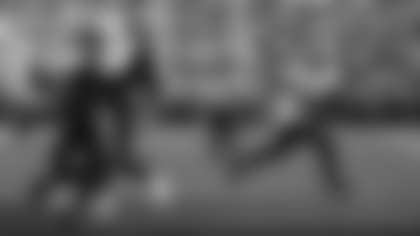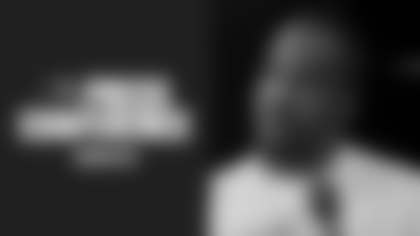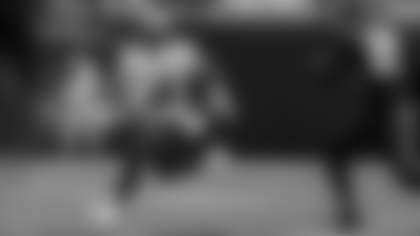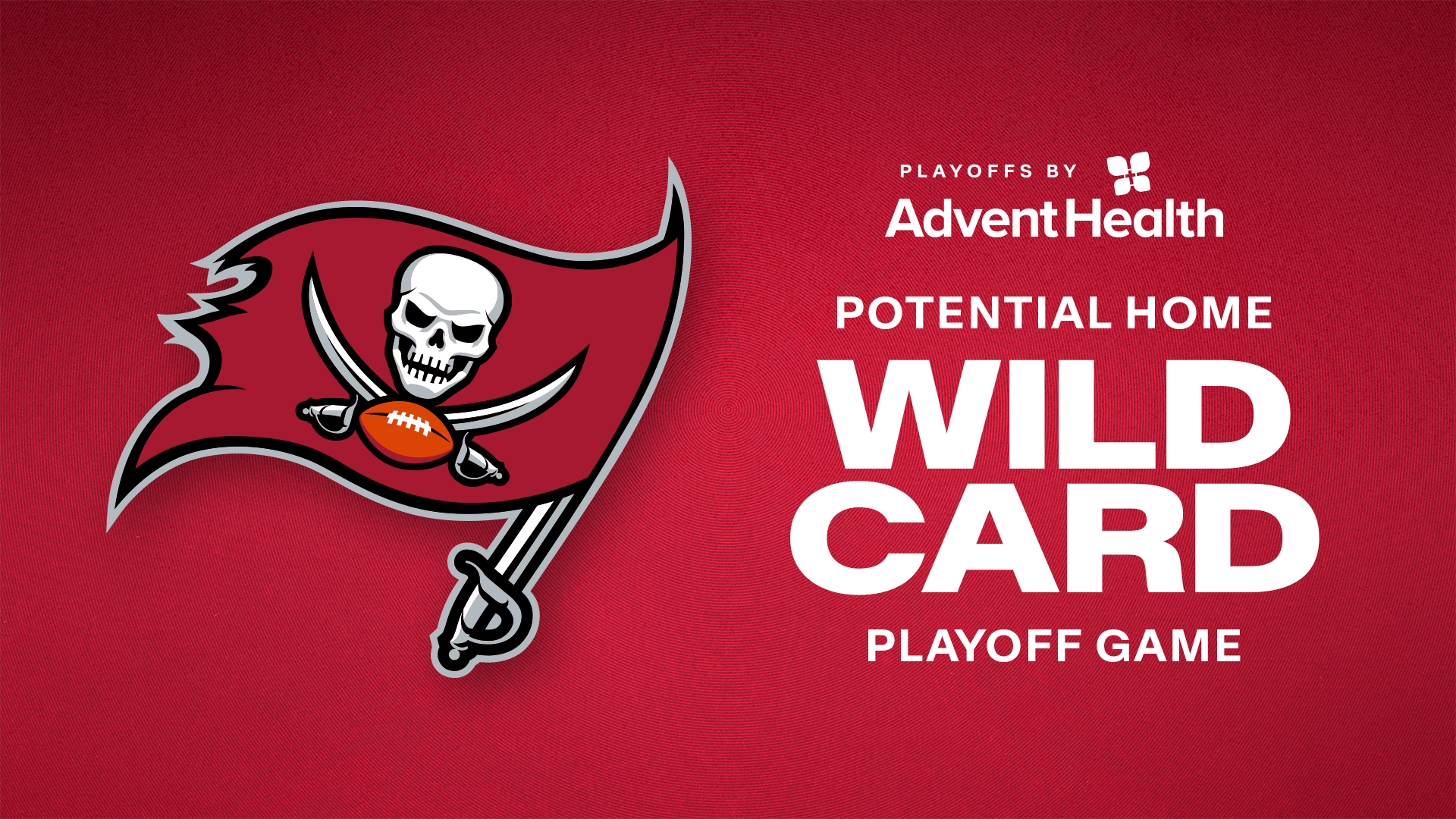Keith Armstrong loves football. Like, loves football. Obviously, everyone who chooses to spend countless days away from their family and countless hours in an office strategizing a live-action version of chess would have to. But Keith is in it.
His introductory press conference was my first inkling into Keith's love for the game. He fired off the X's and O's of special teams right off the bat – making me blink rapidly and attempt to decipher the terms like I was trying to understand my grandparents when they yelled at me in Polish as a child. I could pick out some things, but while I couldn't put the whole puzzle together, it was clear in that press conference, just as it was when I was little, there was passion behind those words. Keith has forgotten more football than most of us will probably ever know. He's played and coached all phases of the game and he's got 'a hell of a lot' of stories along the way, including getting fired by Lou Holtz to ensure he'd take a job with the Atlanta Falcons under June Jones.
He also played for Bruce Arians at Temple, along with Todd Bowles and Todd McNair, both of whom are on staff now in Tampa Bay, and he's got a lot to say about how BA was back then. Eastern Pennsylvania is where it all started for Keith and a lifelong love affair with football followed.
You grew up outside of Philadelphia, but I feel like Eastern Pennsylvania doesn't have quite the football reputation that Western Pennsylvania does…
Yeah, reputations, but you know how that stuff goes. The fun part of it was, Pitt was a rival of ours, so when I played football at Temple University they beat us my freshman year and we beat them every year after that. Even in high school, the Big 33 game: East Pennsylvania versus West Pennsylvania, bam, there was always a clash. I thought high school football there was great, had a really good time in college. We were very competitive. I've been playing football since 1972, St. Joseph the Worker, CYO, 70-pound squad."
So you just stuck with football from then?
Oh yeah. Plus, the Pittsburgh Steelers were winning Super Bowls at that time, it was like 1974, the Steel Curtain, I saw all of that. I was more of a Steelers fan than an Eagles fan. But I was an Eagles fan for one year in 1982 when Dick Vermeil took over and he took them to the Super Bowl, but they didn't win. Kenny King was the running back for Oakland, I still remember it. Will Montgomery was the running back for Philadelphia. One reason why I switched over, too, was because I went to Ron Jaworski's football camp the summer of my junior year going into my senior year. He invited all the players in the area if you were all-league or whatever, so I went and had a hell of a time for about a week. I became a fan because I met those guys. So when you saw Harold Carmichael it was hey man, that guy taught me how to run an out-route.
What was it that made you choose Temple then over the other schools?
To be honest with you, I signed with Wayne Hardin. I didn't sign with Bruce. Wayne retired at the end of my freshman year and then Bruce came in 1982. I was a redshirt freshman. I loved it because he was all about effort and energy and playing hard and that was right up my alley. I fell in love with it.
[Yes, that's how long BA has known Keith. And he's not the only one on staff who played for BA at Temple. Defensive Coordinator Todd Bowles is another… more on that in the next part of this series.]
I end up becoming his starting tailback my redshirt freshman year. Bruce was fun to play for. If you didn't play hard, you were going to hear about it and don't act like you didn't deserve it. But it was fun. The program was alive because of his energy, you know? Things changed. He invested in you. My mother was a schoolteacher so I didn't need him to tell me to go to class, but they were walking around checking classes. I was coming out of there with a degree. I knew that. After that year, I thought I was going to be all-world starting for him [laughs] but then the next year Paul Palmer came on the property, who ends up coming in second to Vinny Testaverde for the Heisman, so, uh, things changed.
By the time we were done my senior year, I was captain and then I GA'd [was a graduate assistant] for Bruce. It was my senior year and we were in stretch, probably first day in full pads. He walks up to me and says, 'Hey man, what are you going to do after this season?' I said I was going to student teach in the spring and I was going to go back to North Penn and coach with my high school coach, be a teacher and a coach. I got a degree in P.E. and I had already done the elementary education requirements so I was going to go do the high school stuff back home. I was ready to rock and roll. He says, 'I'll tell you what, you want to be a GA?'
What do you think it was about you that made him pick you out?
I think he saw how I handled things, like when I got demoted and went from starting tailback to H-back, then back to special teams. I think when he saw the fact that I never stopped playing, I just love football. You know what I mean? Todd McNair [who's now on the Bucs' staff as the running backs coach] came in, bam, he's the tailback, I'm still playing. I had leadership qualities and I think he saw that. I'm guessing. But I think the biggest thing is that he saw that it didn't matter how many times I got knocked down, I popped right back up and kept rolling. That's been me.
[That GA job propelled Keith into the coaching ranks. While he was at Temple, Joe Moore became the offensive line coach. Previously, Moore had worked at Pitt with none other than Jimmy Johnson. Moore then presents Keith with two options after his first GA year: the University of Iowa, under Barry Alvarez, who was the defensive coordinator at the time and is now the current AD at Wisconsin, or under Jimmy Johnson at the University of Miami. Guess which one he chose?]
So, The U, huh?
They were hot back then. It was THE University of Miami. The real one. Sh-t was rolling. It wasn't 24 hours later I said I'll take you up on that Jimmy Johnson deal. They put me on defense. But on offense, they had Gary Stevens, who got me my first job believe it or not. The offensive coordinator got me my first job at the University of Akron coaching wide receivers for Gerry Faust.
How did it turn into special teams?
Jimmy Johnson calls me after the Akron season and says, 'Keith, I got a job for you at Oklahoma State.' Jimmy had gone from Pitt to Oklahoma State for his first job so he got me on there to coach defensive backs for three years. Then, I go to Joe Moore, who is now at Notre Dame coaching offensive line. Lou Holtz has an outside linebacker/special teams job open. Bam. So, I did [special teams] there. Now, with Lou Holtz, if you weren't aspiring to do something better or become a head coach, if you were just going to settle at Notre Dame, he was probably going to let you go. I'm doing these minority internships in the summer. I did one with Joe Daniels from the Jets. Joe was the OC at Akron with me. I did one with Jimmy in Dallas. And I did one with Dave Wannstedt when he got the Chicago Bears head job. I'm working my butt off.
One day, Lou Holtz sends the secretary into our staff meeting to pull me out and I go into Lou's office, the phone is just like this [takes his phone receiver off its dock]. I say, 'Yes, Coach?' I'm 27 years old. He says, 'Keith, I got June Jones on the phone, he wants to talk to you about the secondary job with the Atlanta Falcons. Are you interested in taking this job?' I said Coach, at 27 years old, I have to take that opportunity. He looked at me and says, 'Well, you better get it. Here's the phone.' And handed the phone to me.
I get on the phone with June and June says well, I guess you're hired [belly laughs].
He heard the whole thing?
Oh yeah. I said yeah, Coach, I think I'm out of a job here.
[June Jones and his staff at the Falcons were fired after three years. By this time, Dave Wannstedt is the head coach of the Chicago Bears and offers Keith the job of special teams coordinator, which solidified him at the position.]
So, now you're solely special teams in Chicago, that's where it started.
That's where it really started. The first year, we finished 27th in the league in special teams. They're killing me in those Chicago papers and they get personal, now. They threw jabs, they're imitating how I speak, they're just killing me. I got my fists balled up, I'm ready to fight the whole city. Next year, we finish fourth.
What was the difference?
I think one, I grew as a coach. A guy by the name of Al Roberts took the time, I went to his house in Cincinnati, and he spent two days with me and went through everything he did. I took that and built the frame off of that. I took a lot of it and made it my own, bent it to where I wanted it to be. I have to give the late Mark Hatley credit, because if it wasn't for him, I wouldn't be here. He didn't have the GM title, but he was the GM. Dave was saying maybe they should move me to quality control after that year of finishing 27th and then Mark said no, he can coach. We just have to fix some stuff. I'll tell you what, he did a hell of a job. We did well.

Then you went back to the Falcons for the past 11 years. How is that going to be seeing them twice a year now as a member of the opposition?
I know those guys. We'll change a lot of verbiage and terminology here as we go through it and go through the system and all. It's the nature of this league. You just have to keep rolling. Obviously, we're going to compete. I'm not putting any fuel on the fire. It's definitely a division that I'm very familiar with.
With all these moves, how has your family adjusted to this lifestyle?
They're tough. I didn't get married until I was at Oklahoma State, the last year. My wife was a schoolteacher at Oklahoma State and she had to drop that job to come to Notre Dame with me and work at a mall. Then in Atlanta, she got back into teaching and first baby was that third year in Atlanta. Then we move right away to Chicago, sell the house, move with a one-year-old. Then we have my second daughter in Chicago in the fourth year, right before we leave. Now, I got a four-year-old and a one-year-old and we move to Miami and stayed there until 2007. In 2008, I finally said nope. When we went to Atlanta, I started commuting. In the offseasons, I came home on Friday nights and left Ft. Lauderdale on Sundays at 5 p.m. During the season, they would come up for the games. It was easier when they were in elementary school, it got harder as they went to high school because they were both swimmers. Now, they're both done swimming and I'm right down the road so I can drive three hours or take a 30-minute flight.
I say to the guys all the time, I don't need a pep talk. I got two kids.
Sunday one o'clock, I know what we're doing, let's go win because we're all taking care of each other's families. I feed your kids and you feed mine.
I know that coaching doesn't allow for a lot of free time, but do you have hobbies? You have this Peloton bike in your office, I see.
I just started that about a year ago. I had one in Atlanta and I had one at the house. Now, I bought one for here and still have the one at home. I love it. I ride. Outside of that, I don't really have a whole lot of hobbies outside of football. I like to talk ball. That's been pretty much it.
Sounds like you're just kind of a football guy.
Yeah, I picked the right profession, I think.

























